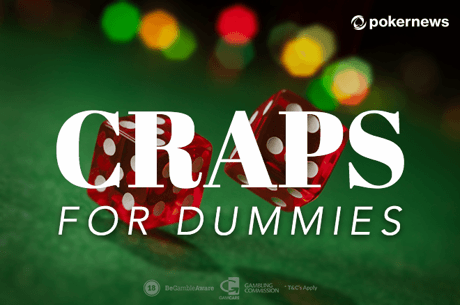Stud Poker Strategy: Bad Advice

My daughter is going off to France today, studying abroad for the second semester of her junior year of college. I have a long list of things I want to tell her – advice for living and studying abroad. But before I have that conversation I am reminded of all of the advice I've heard at the poker table. Most of it is bad. Maybe I should just heed the age-old saying about advice:
"Never give advice. Wise men don't need it and fools won't heed it!"
Just for fun, I went over my notes from playing sessions over the past few years. I make notes when I hear or read something that I think is especially useful or awful. This is from my awful file.
A columnist who writes for low-stakes players just starting out in poker writes, "…never play a hand the same way twice in a row. It will make you too predictable."
What a dreadful piece of advice for the new low-stakes player. You make money in those games, for the most part, by taking advantage of the loose, bad play of your opponents. They call too much; they overbet their hands, they can't read your hand, they don't know when they're drawing dead; they don't respect your raises; they frequently call when they should raise; they often don't bet their hand when they should; and they don't understand when to raise. And here this advice-giver is telling you to make sure to mix up your play to avoid having your opponents figure out how you play.
They can't even figure out their own play. How are they going to figure you out?
The truth is that in these games, the best strategy is often to play with the discipline and regularity of a machine. It's true that mixing up your play may be important against observant, skilled and disciplined opponents who are aware enough to notice what you do (and disciplined enough to respond properly to your action). However, against many bad opponents who call too much, varying your play is often a bad mistake. Why bother mixing up your play against people who don't pay attention and don't act correctly?
Don't waste 'moves' on players who won't remember and can't figure out what you're doing. They're there to play. They'll call you when you bet for value even when they're behind. Don't waste your money on confusing opponents who are already confused.
Here's another tidbit of horrendous advice for new casino players in these low-stakes games. "Figuring out your opponents is the most important skill you can develop in poker." He goes on to explain that you need to focus your attention on how each of your opponents plays so you can maximize your wins.
To be fair, it's surely helpful to know how your opponents play. But asserting that it's the most important thing incorrectly minimizes what really is important in most low and intermediate poker games.
New and low-stakes players shouldn't focus on figuring out their opponents. Rather, it's much more important to learn the relative value of your starting cards, to learn to bet and raise aggressively when you are in the lead. You need to learn to fold hands that don't have much promise. And you need to learn how to call bets on the river when you have at least a thin chance of winning the pot. And while it's true that learning how your opponents play is helpful, especially as you move up to tighter and more aggressive games, it falls distantly behind all of those other factors when it comes to profiting in low- and medium-stakes poker. So, sure, pay attention to your opponents. Try to remember who the loose and tight players are and some of the more obvious tells. But first, you must learn the basics of winning play like what hands to play and how to play them. Advocating otherwise is just terrible advice and will end up costing you money.











